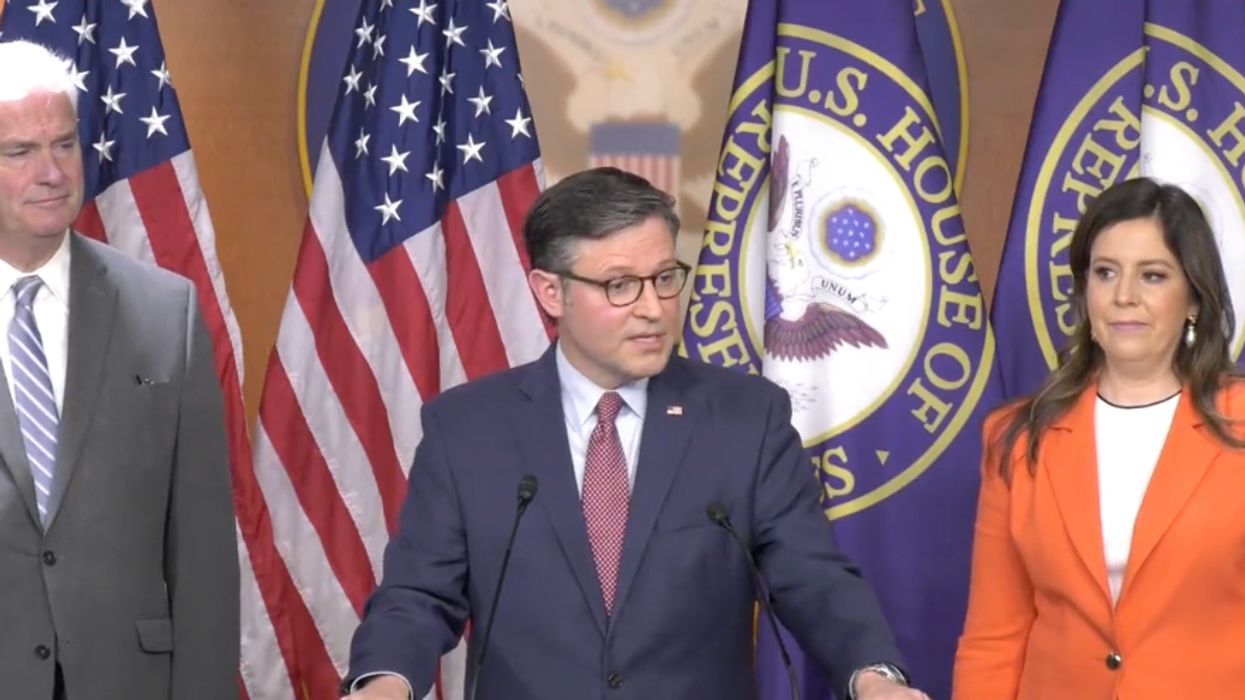'Strong spokesman': Why Johnson’s election is 'like winning the lottery' for evangelical Christians

House Speaker Mike Johnson (R-LA) (Center), Image via screengrab/X.
November 05, 2023 | 08:56AM ETBank
House Speaker Mike Johnson's (R-LA) recent election is a major win for staunch evangelicals, according to several leaders within the Southern Baptist community, according to The New York Times.
The Times reports:
For some observers, both Mr. Johnson’s résumé, however mainstream, and his rhetoric, however mildly delivered, represent the alarming rise of a new Christian right that fuses traditional social conservatism and authoritarian instincts. Mr. Johnson has said that the popular self-styled historian David Barton, who has questioned the constitutionality of the separation of church and state, has had a 'profound influence' on him.
Southern Baptist Theological Seminary Christian ethics professor Andrew Walker told the newspaper that the Louisiana lawmaker "seems like a very strong spokesman for what Christians would want to see presented in the public square," emphasizing that Johnson "represents a sizable constituency for whom his views are very much in the mainstream.
POLL: Should Trump be allowed to hold office again?
He added, "No matter what secular America wants to say, we aren't going anywhere."
Albert Mohler Jr., who serves as president of the seminary said, "For Southern Baptists it's like winning the lottery."
The Time notes:
Mr. Mohler is among several Southern Baptists who emphasized in interviews how familiar — even ordinary — Mr. Johnson seemed to them, even as they recognized the extraordinary occasion of his election. Noting Mr. Johnson’s associations through the years with institutions like Focus on the Family, which opposes abortion and gay marriage, Mr. Mohler said he would describe Mr. Johnson as he would describe himself: 'a conservative evangelical Southern Baptist deeply involved in these issues for decades,' and one who is 'absolutely representative' of conservative evangelicalism.
Indiana University-Purdue University Indianapolis sociologist Andrew Whitehead deems the speaker a "near-perfect example" of the "rise of Christian nationalism."